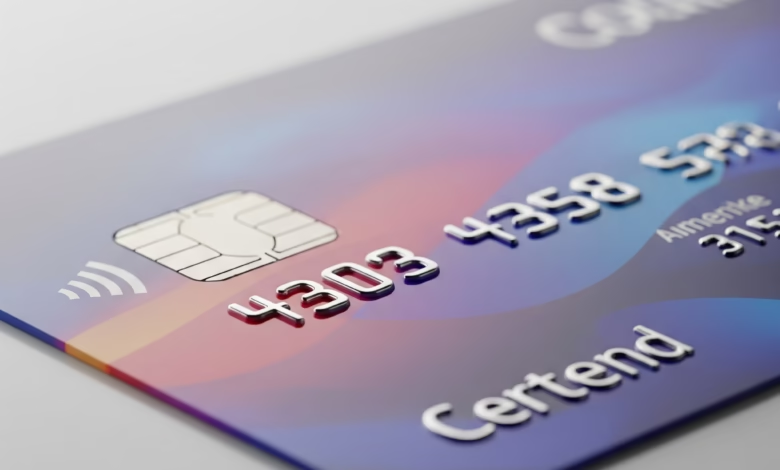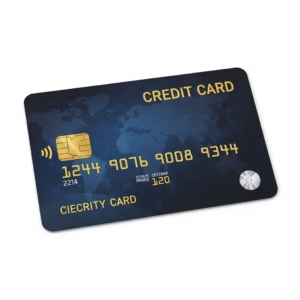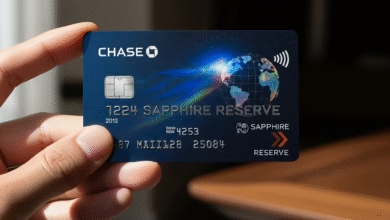Which is better for you, credit card or debit card?
Understand the differences between Credit Card vs. Debit Card

In today’s digital world, carrying cash is becoming less common. Most of us rely on plastic for our daily purchases, but have you ever stopped to consider the fundamental differences between the cards in your wallet: credit cards and debit cards? While both offer convenience, they operate very differently and choosing the right one for various situations can significantly impact your financial health.
Understanding the Basics: Debit vs. Credit Functionality

Before we dive into the pros and cons, let’s clarify how each card works:
Debit Cards: Spending Your Own Money, Instantly
A debit card is directly linked to your bank account (checking or savings). When you use a debit card, the money for your purchase is immediately deducted from your account. Think of it as an electronic check. If you don’t have enough money in your account, the transaction will likely be declined, or you might incur an overdraft fee from your bank. Debit cards are all about spending the money you already have.
Credit Cards: Borrowing Money, Building Credit
A credit card, on the other hand, allows you to borrow money up to a pre-set limit from a financial institution. When you make a purchase, you’re using the bank’s money, not your own. You then receive a monthly statement outlining your purchases, and you’re obligated to pay back the borrowed amount, usually with interest if you don’t pay the full balance by the due date. Credit cards involve borrowing and repaying.
Advantages of Using a Credit Card: Rewards and Protection

Credit cards, when used responsibly, offer several compelling benefits that debit cards typically don’t.
Building Your Credit History: The Path to Financial Opportunities
This is perhaps the most significant advantage of credit cards. By using a credit card responsibly – meaning making your payments on time and keeping your balances low – you build a positive credit history. A strong credit history and good credit score are vital for securing loans (like mortgages or car loans), renting apartments, and even getting better rates on insurance. Debit card use does not contribute to your credit score.
Enhanced Consumer Protection: Safeguarding Your Purchases
Credit cards generally offer superior fraud protection compared to debit cards. If your credit card is stolen or used fraudulently, you’re often only liable for a small amount (e.g., $50 in the US, often waived by card issuers) or even $0 if you report it quickly. With debit cards, fraudulent activity can directly drain your bank account, and while banks often offer protection, recovering funds can sometimes be a slower and more complex process. Credit card networks also frequently provide purchase protection, extended warranties, and dispute resolution services.
Rewards and Benefits: Earning While You Spend
Many credit cards come with attractive rewards programs. These can include:
- Cash Back: A percentage of your spending returned to you.
- Travel Miles/Points: Redeemable for flights, hotels, or other travel perks.
- Points: Redeemable for merchandise, gift cards, or statement credits.
These rewards can offer significant value, especially if you spend regularly and pay your balance in full each month to avoid interest charges.
Emergency Fund Access: A Safety Net When Needed

While not a substitute for a true emergency savings account, a credit card can provide a crucial financial lifeline in unexpected situations, such as a car repair or medical emergency, especially if your savings are tied up or insufficient. This access to immediate funds can be a major advantage.
Advantages of Using a Debit Card: Simplicity and Control
Debit cards also have their distinct benefits, particularly for those who prefer simplicity and tight control over their spending.
Avoiding Debt: The Ultimate Financial Discipline
With a debit card, you can only spend the money you have. This inherent limitation makes it impossible to accumulate debt, which is a major advantage for individuals who struggle with overspending or carrying credit card balances. It enforces a “pay as you go” approach to your finances.
No Interest Charges: Spend Without Extra Costs
Since you’re spending your own money, there are no interest charges with a debit card. This means you won’t incur any additional costs on your purchases beyond the initial price of the item.
Simplicity and Accessibility: Easy Money Management

Debit cards are straightforward. There’s no credit limit to track, no monthly statements to decipher (beyond your bank account activity), and no risk of high-interest debt. They are excellent for everyday transactions like groceries, gas, and small purchases. Many people find them easier to manage, especially those new to budgeting.
Wide Acceptance: Ubiquitous Payment Method
Both debit and credit cards are widely accepted globally, making debit cards a convenient payment method almost anywhere.
Which is Better for You? Making an Informed Decision
The “better” card depends entirely on your financial habits, goals, and discipline.
-
Choose a Debit Card if:
- You want to avoid debt at all costs.
- You prefer to spend only the money you have.
- You’re building financial discipline.
- You’re worried about overspending.
- You don’t want to deal with interest rates or credit scores.
-
Choose a Credit Card (used responsibly) if:
- You want to build a strong credit history for future financial opportunities.
- You desire the added consumer protection and fraud safeguards.
- You can commit to paying your balance in full every month to avoid interest.
- You want to earn rewards like cash back or travel points.
- You need a financial tool for emergencies (alongside savings).
Many financial experts recommend having both a debit card for daily spending and a credit card for building credit, earning rewards, and benefiting from stronger protections. The key is to understand how each works and to use them strategically.
Best Practices for Both Cards: Smart Spending Habits

Regardless of your preference, practicing smart spending habits is crucial:
- Budget Your Money: Know how much you can afford to spend.
- Track Your Spending: Regularly review your bank and credit card statements.
- Avoid Overdrafts (Debit) and High Balances (Credit): Stay within your means.
- Report Lost/Stolen Cards Immediately: Protect yourself from fraud.
By understanding the unique features and benefits of credit and debit cards, you can make informed decisions that empower your financial journey and help you achieve your goals.





